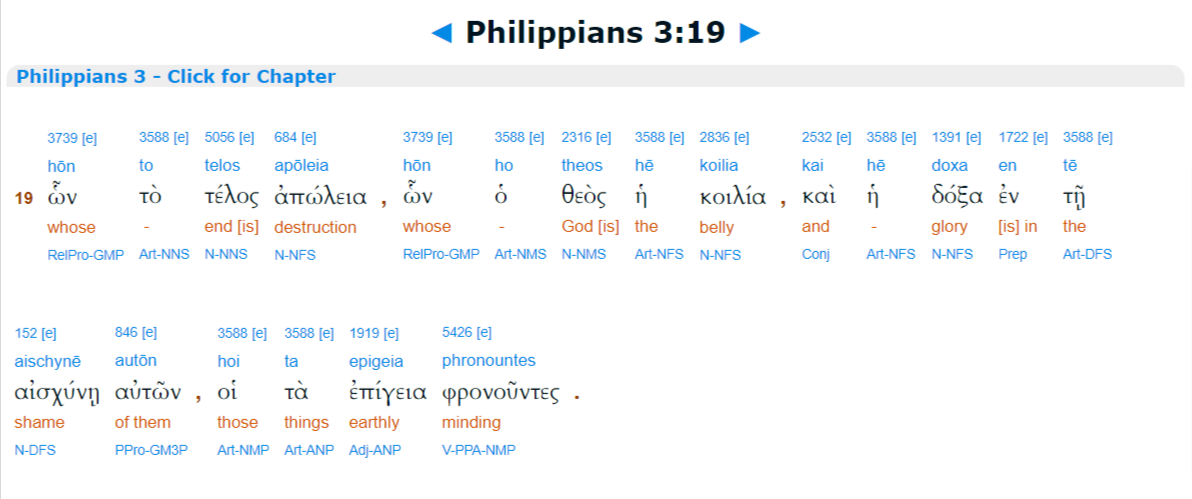When Pope John Paul II performed a pagan fertility ritual of pouring a special mixture of flour onto the earth with African witch doctors in Togo or let the Lakota Indians pass him the peace pipe in the presence of the Wakan Tanka, it was not part of some photo op. Contrary to popular Christain belief, even the Pope and these pagans knew the difference between God and the Spirit of the world.
In the Christian sense, they were communing ecumenically with who we find in the Scripture and the ‘spiritus principalis.’ The Latin term, “spiritus principali”, is found only once, in Psalm and variously translated as “chief spirit, governing spirit, thy directing spirit, or the Holy Spirit,” which is in contrast to what is called the Spiritus Paracliticus.
The Scripture informs us that one of these spirits is a governing spirit or Holy Spirit from God, which is good, while the other is the “mind or spirit of the flesh,” which causes humans to be selfish and sin, leading to destruction and death. The mind of the flesh is not high minded
The original Greek translation for “set their minds” is the word phroneo, which comes from the phren (Ancient Greek: φρήν, romanized: phrēn, lit. ‘mind’; plural phrenes, φρένες), an Ancient Greek philosophical concept for the location of thought or contemplation. Both a physical body part and emotions. According to Pythagoras, it is one of the intellectual capacities that constitute the soul, along with nous (spirit or mind) and thymos (passion).
Several Ancient Greek literary sources refer to the word phrenes ruled by the Goddess ” Atē” as being the place or location of the mind where emotion like anger arises. In the story told by Agamemnon, he makes an appeal to Achilles’ emotion;
“…he was struck in his mind [phrēn] with a sharp sorrow [akhos]. And right away he grabbed the goddess Atē by the head—that head covered with luxuriant curls— since he was angry in his thinking [phrenes], and he swore a binding oath that never will she come to Olympus and to the starry sky never again will she come back, that goddess Atē, who makes everyone veer off-course [aâsthai].
In Homer’s Iliad, the dialogue between the Nurse and Phaedra shows us that listening to the wrong God (voice or spirit) steers us off course causing us to go mad and become deranged. (Iliad 19.125–129, Sourcebook)
Nurse – These things are worth a lot of consultation with seers: which one of the gods is steering you off course and deflects your thinking [phrenes], child?
Phaedra – Wretched me, what have I done? Where have I strayed from good sense? I have gone mad and fallen by derangement [atē] from a daimōn.
In the speech of Circe, she tells Odysseus to consult Teiresias:
But first, you [Odysseus] must bring to fulfillment [teleîn] another journey and travel until you enter the palace of Hādēs and of the dreaded Peresephone, and there you all will consult [khrē-] the spirit [psūkhē] of Teiresias of Thebes, the blind seer [mantis], whose thinking [phrenes] is grounded [empedoi]: to him, even though he was dead, Persephone gave consciousness [noos], so as to be the only one there who has the power to think [pepnusthai].
This Greek concept of the location on the anatomy of phrēn or phrenes would be the midriff or gut of the person.
Examples of words we derive from the Greek phren in English are diaphragm (“phrenic nerve”) and the mind or senses. Words like schizophrenia, frenetic and frantic. Schizophrenia is from the Greek roots schizein ( “to split”) and phren, phren- (“mind”), which is a psychiatric diagnosis that describes a mental illness characterized by impairments in the perception or expression of reality.
It is interesting these concepts of the mind of the flesh being related to the gut, belly, or digestive tracts are validated by science today. This is where our second brains are located as I have stated many times before.
According to Psychology Today;
Research indicates that this is oftentimes true of neurodegenerative disorders, such as Parkinson’s disease and multiple sclerosis, as well as disorders that are typically thought of as being confined to a specific portion of the digestive tract—such as ulcerative colitis and irritable bowel syndrome. Researchers are even finding a strong correlation between individual mental disorders, such as schizophrenia, and deviations in the populations of specific gut bacteria populations.
They further reported;
“Writing in the February 2019 edition of Science Advances, the team “found obvious differences in gut microbial composition between the two groups,” and that the bacterial communities in the two deviated at the phylum or class level. Furthermore, they discovered that “Global microbial phenotypes were not greatly influenced by sex or medication status.”
In other words, the gut biomes of the schizophrenic subjects had an elevated level of some specific bacterial families and a deficiency of other specific bacterial families when compared to the gut biomes of the healthy controls. The researchers also found that imbalances of gut bacteria (dysbiosis) in the schizophrenic subjects were distinct from patients with a major depressive disorder and that there were clear microbial markers that correlated strongly with symptomatic severity. They could even determine whether or not a biome sample came from a schizophrenic subject or a control subject with a great deal of accuracy.”
The Christian concept of two mindsets governing people’s minds and there are two destinies based on what spirit people listen to and live their lives. Like the Ancient Greeks, the mind of the flesh came from the gut or belly. The Spiritus Principalis i.e., God’s directing or Governing Spirit, is a higher mind in contrast to the “mind of the flesh” as written in Romans 8:5-7. Those who live according to the flesh set their minds on the things of the flesh, but those who live according to the Spirit set their minds on the things of the Spirit.
The mind of the flesh is death, but the mind of the Spirit is life and peace because the mind of the flesh is hostile to God: It does not submit to God’s law, nor can it do so.
In Philippians 3:19, we learn that people whose end destruction, God is the belly and glory is the shame of things earthly minded.
Psalm 50, verse 12, we find the term Spiritus Principalis. Brenton’s LXX translation asks God to “establish me with thy directing Spirit” and David and James both ask for a “governing spirit” that seems to have the same meaning. Spiritus Principalis is also variously translated as “chief Spirit, governing Spirit, perfect Spirit, and generous resolve.
Translations from the Hebrew word is nadib: generous, magnanimous, willing-hearted, noble, and the Hebrew nakōn, from the root kwn, which means “to be firm, established, prepared.” The Hebrew naqntā means things like “firmly set, stable, steady, reliable, firm, steadfast, honest, trusty, good, thorough.”
St. Paul is clear when he tells us, “For those who are according to the flesh set their minds on the things of the flesh” (verse 5). Those who are “according to the flesh” are “in the flesh” in verse 8. Meaning they are governed and ruled by their flesh rather than by the Spirit of God. The “flesh” refers to selfishness, material pleasures, worldly pursuits, secular beliefs, self-interest, and self-promotion.
Paul previously said, “Do you not know that when you present yourselves to someone as slaves for obedience, you are slaves of the one whom you obey, either of sin resulting in death, or of obedience resulting in righteousness?” (Romans 6:16).
Paul states that “Because the mind set on the flesh is hostile toward God” (verse 7). The meaning of hostile is opposed. antagonistic, and hatred against God. An unbeliever is “hostile in mind” toward God (Colossians 1:21). James says that unbelievers have “hostility toward God” and are “an enemy of God” (James 4:4).
According to Monet of Cremona, the Holy Spirit is called Spiritus Principalis, meaning “firmus” because the devil did not deceive them, and he also created a great multitude of different entities called Spiritus Paracliticus. Their whole mental and moral activity is set upon nothing else but the gratification of the flesh and the material world, which is selfish and carnal because the carnal mind is enmity against God and equates to death.
These were the sinners who lived in darkness and were covered in sackcloth.
The Sons of Disobedience and the Children of Wrath.
These mind-controlled people were the “children in whom is no faith” (Isa 30:9; 57:4). They disobey the Gospel of their ancestors both in faith and practice (2Th 1:8; 2Co 2:12) and thus become “children of disobedience” and the “wicked.” Saint Paul had said, “The spirit that now worketh – That still lives, and whose energy for evil is still seen and felt among the wicked.”
The Catechism of the Catholic Church (CCC) issues the power of governance (CCC 1537) through the governing Spirit in the form of Episcopal ordination promulgated by Pope Paul VI to be conferred on a new bishop: “And now pour forth on this chosen one that power which is from you, the governing Spirit, whom you gave to your beloved Son Jesus Christ, whom He gave to the holy Apostles, who founded the Church in every place as your sanctuary, unto the glory and unending praise of Your Name.”
In Ephesians 2:3, we learn that those people who had a mind of the flesh were controlled by the “ruler of the power of the air.” In which you used to walk when you conformed to the ways of this world and of the ruler of the power of the air, the Spirit who is now at work in the sons of disobedience. All of us also lived among them at one time, fulfilling the cravings of our flesh and indulging its desires and thoughts. Like the rest, we were by nature children of wrath.
In Romans 8:13; “For if you live according to the flesh, you will die; but if by the Spirit you put to death the deeds of the body, you will live. Romans 8:27 “And He who searches our hearts knows the mind of the Spirit because the Spirit intercedes for the saints according to the will of God. We find in Galatians 6:8, “The one who sows to please his flesh, from the flesh will reap destruction; but the one who sows to please the Spirit, from the Spirit will reap eternal life.”
Therefore, Catholic teaching tells us that spiritus principalisis conferred via a formal cause (causa formalis) is that cause or principle which determines the form, that is, the structure, the essence of a being. The principal of the formal cause, like the material cause, is an internal cause of every (created) being.
It simply consists in the form or appearance (Greek: ‘idea’ or ‘eidos’), the structure or the pattern found in beings molded in the form of the Holy Spirit or the Mind of the Flesh.
A de facto type of mind control in which we choose to live determines how our minds operate in the world and how natural laws dictate our destinies.
You will know them by their ideas (eidos) words and works.

Moe is the founder of GnosticWarrior.com. He is a father, husband, author, martial arts black belt, and an expert in Gnosticism, the occult, and esotericism.







![How Fursa built a monastery among the East Angles, and of his visions and sanctity, to which, his flesh remaining uncorrupted after death bore testimony [Circ. 633 A.D.] | Book 3 | Chapter 19 How Fursa built a monastery among the East Angles, and of his visions and sanctity, to which, his flesh remaining uncorrupted after death bore testimony [Circ. 633 A.D.] | Book 3 | Chapter 19](https://www.gnosticwarrior.com/wp-content/plugins/contextual-related-posts/default.png)


Would you say that “flesh” in your Biblical quotes relates to sexual intercourse the way that man is doing it? In my research, I have come to believe that in the Bible that at least “some of the time” the word flesh relates to the impurity of sexual relations. Whether that be with all, or just with anyone who is not of “our type”, I am still unsure of. I am also not sure of what “our type” fully means, but from research, I feel it can mean an angel with an angel, and archon with an archon, and aeon with an aeon, etc…